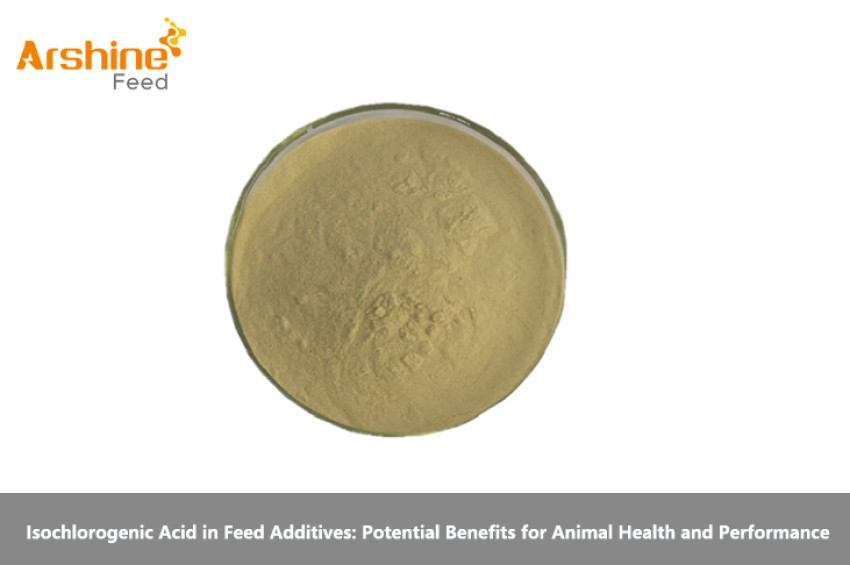
As the demand for sustainable and effective animal production practices continues to grow, researchers and producers are exploring innovative solutions to enhance animal health and performance.Isochlorogenic acid, a natural compound derived from various plant sources, has gained attention for its potential applications in animal nutrition. This article explores the utilization of isochlorogenic acid in feed additives, highlighting its potential benefits in promoting animal health, improving antioxidant status, and enhancing overall performance.
Section 1: Understanding Isochlorogenic Acid Isochlorogenic acid is a polyphenolic compound that belongs to the chlorogenic acid family. It is naturally found in various plant sources, including fruits, vegetables, and herbs. Isochlorogenic acid possesses potent antioxidant properties and has been associated with various health benefits in humans. Its application in animal nutrition aims to harness these benefits for improved animal health and productivity.
Section 2: Antioxidant Effects and Oxidative Stress Mitigation One of the primary benefits of isochlorogenic acid in feed additives is its antioxidant activity. It scavenges harmful free radicals and reduces oxidative stress in animal tissues. By mitigating oxidative damage, isochlorogenic acid helps protect cells and organs from oxidative stress-related diseases. This can lead to improved animal health, enhanced immune function, and reduced susceptibility to oxidative-related disorders.
Section 3: Gut Health and Immune Modulation Isochlorogenic acid has demonstrated potential in promoting gut health and modulating immune function in animals. It supports the growth of beneficial gut bacteria, such as Lactobacillus and Bifidobacterium, while inhibiting the growth of harmful pathogens. This leads to improved gut microbial balance, enhanced nutrient absorption, and reduced risk of gastrointestinal disorders. Additionally, isochlorogenic acid has been shown to regulate immune responses, supporting a balanced immune system and reducing inflammatory reactions.
Section 4: Performance Enhancement and Nutrient Utilization Supplementing animal diets with isochlorogenic acid has shown positive effects on performance and nutrient utilization. It has been associated with improved feed conversion efficiency, weight gain, and growth rates in various animal species. Isochlorogenic acid enhances the digestibility and absorption of nutrients, resulting in better utilization of dietary components. This can lead to improved overall productivity and reduced feed costs.
Section 5: Considerations for Effective Use To effectively utilize isochlorogenic acid in feed additives, certain considerations should be taken into account. These include determining the optimal dosage based on animal species, age, and specific production goals. The stability of isochlorogenic acid during feed processing and storage should also be considered to ensure its efficacy. Furthermore, regular monitoring of animal health, performance parameters, and feed quality is essential to evaluate the effectiveness of isochlorogenic acid supplementation and make any necessary adjustments.
Conclusion Isochlorogenic acid holds promising potential as a feed additive for promoting animal health, improving antioxidant status, and enhancing overall performance. Its antioxidant effects, gut health benefits, immune modulation properties, and positive impact on nutrient utilization make it an attractive ingredient in animal nutrition strategies. By incorporating isochlorogenic acid into animal diets, producers can strive for improved animal well-being, reduced disease incidence, and increased productivity. However, further research is needed to fully understand its mechanisms of action, optimal dosages, and potential interactions with other feed components.
https://www.arshinefeed.com/Knowledge/-isochlorogenic-acid-in-feed-additives-potential-benefits-for-animal-health-and-performance


